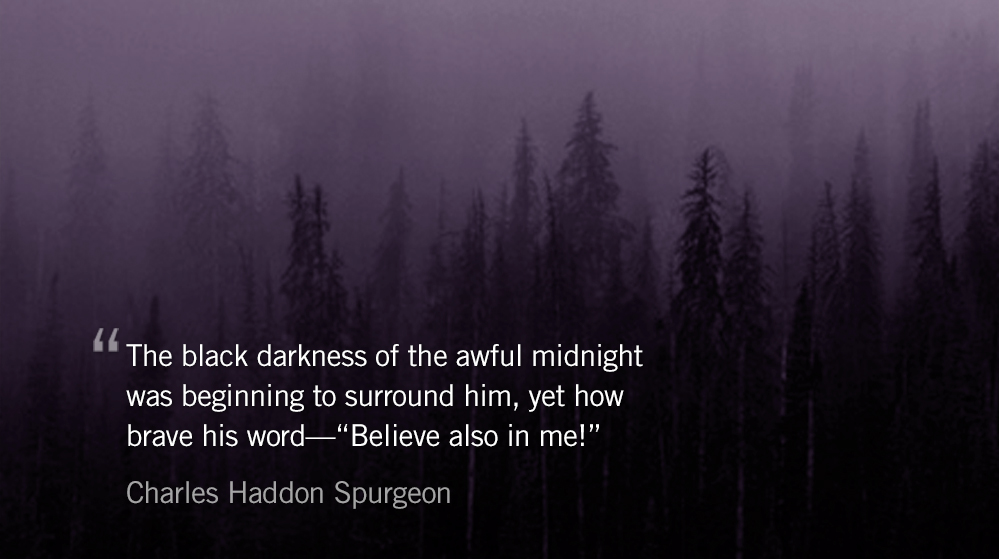Today: The Remedy for a Disquieted Soul: a Holy Week reflection and prayer guide to prepare our hearts and minds for Easter. Curated by The Park Forum.
John 20.19
On the evening of that first day of the week, when the disciples were together, with the doors locked for fear of the Jewish leaders, Jesus came and stood among them and said, “Peace be with you!”
The Farewell Discourse and Final Prayer of Jesus (an excerpt) | by Don Carson
It is vital to recognize that the peace Jesus gives is not a kind of placid tranquility which avoids all conflict. Jesus himself is heading for the cross; yet he speaks of his peace.
Similarly, the peace Jesus promises does not avoid trouble; it triumphs over it. Nor is this peace to be confused with aloofness that is indifferent to injustice, corruption, idolatry, or some other sin. It is not simply “feeling good” in some narcissistic way, nor is it some mystical sense of well-being detached from physical and spiritual realities.
The world wishes peace on people. Yet for all its wishing, the world cannot grant the gift of personal peace, but only wish it on someone. At most, it can achieve reconciliation between brothers or between nations; and even then the achievement often proves temporary.
Christ, by contrast, bequeaths the gift of peace on all his followers, bestowing it as an essential part of the salvation he achieves for them. The cross wins peace with God. The forgiveness, restoration, and healing which flow from this primary peace constitute the only adequate basis for peace with others, and for personal peace within ourselves.
So much of our restlessness and bitterness springs from our possessiveness, our desire for preeminence, our lust for recognition. Our love for self is so strong that it turns to hatred for others who do not give us what we think is our due.
There is no peace where such sins flourish. Jesus betrayed no possessiveness. He desired his Father’s glory and will, not personal preeminence and popular recognition. Far from loving his life, he gave it up for others—indeed, for others who did not begin to offer him what was his due. And so Jesus could speak of his peace.
Lenten Evening Prayer: The Daily Examen
1. Opening prayer of invitation: become aware of God’s presence (2 minutes).
2. Review the day with gratitude (3 minutes).
3. Pay attention to your emotions (3 minutes).
4. Choose one feature of the day and pray from it (5 minutes).
5. Closing prayer: look toward tomorrow (2 minutes).
Today’s Readings
Leviticus 1 (0 – 2:37)
John 20 (Listen – 4:17)
Holy Week Reflections
Part 1 of 5, read more on TheParkForum.org
___________________
FAQs
How can I make a tax-deductible donation? Click here.
How can I get these devotionals in my inbox? Click here.
What is the reading plan this blog is based on? Click here.
___________________________________








